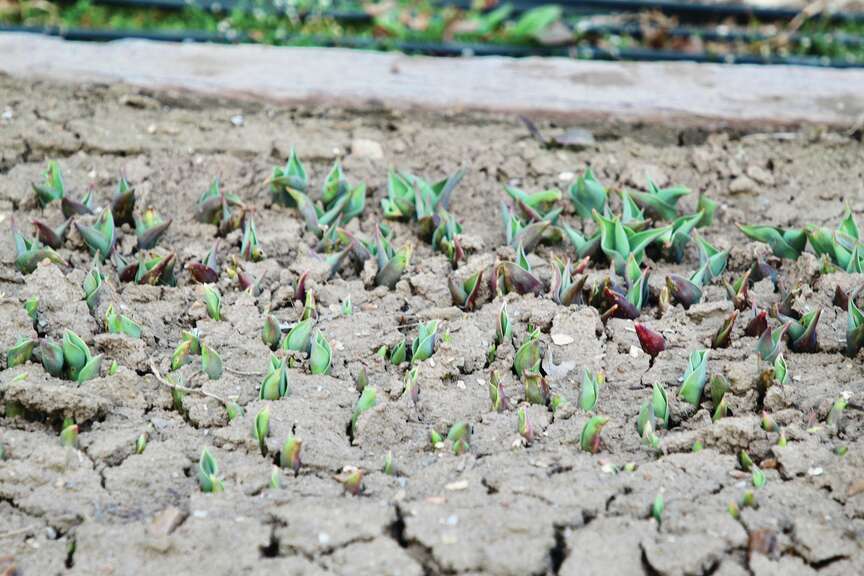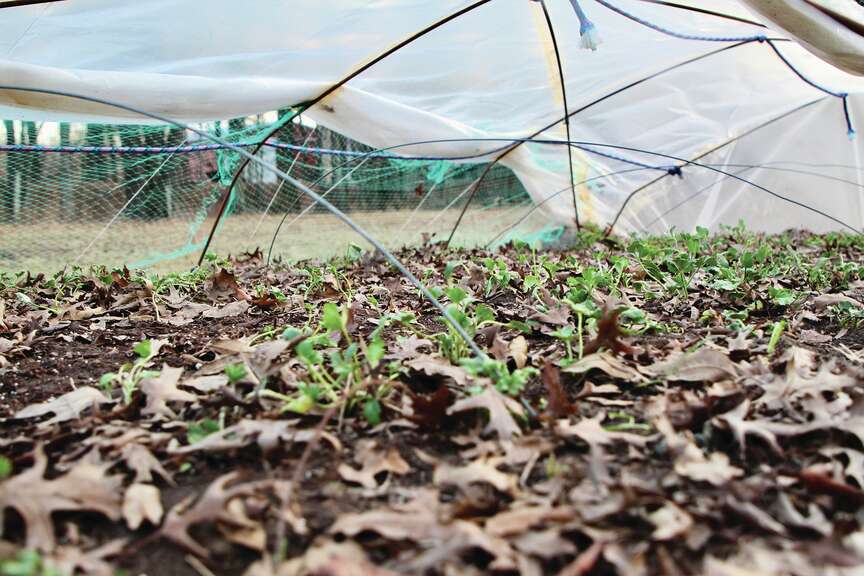Two area farms are growing more than the usual vegetables — fields of dahlias, tulips, daisies and other beautiful flowers bloom on their family farms.
Rudy Lane Flower Farm and Mostly Meg are just two of the local flower farmers, a business model that has seen growth in recent years.
For Megan Rudroff at Rudy Lane Flower Farm in Linn, the inspiration came from social media. After she and her husband purchased their cattle farm back in 2010, she had the desire to start her own enterprise, but was unsure of what to create.
Rudroff looked into getting sheep, goats or pasture chickens, or even growing mushrooms indoors, but ultimately none of it felt right.
“Nothing really clicked until I stumbled upon flower farming through Instagram,” Rudroff said.
And so it began. Rudroff began by planting only peonies in 2019 and later decided to add more to her fields.
“It just seemed like everything kind of clicked for what I wanted from our farm and what I could do with our kids safely,” Rudroff said.
When the pandemic started the next year, Rudy Lane had to pivot their business model. They mostly grew and sold from their farmstand where people could stop by and buy bouquets, creating a contactless market.
Since then, Rudy Lane has expanded and is now up to 600 peonies, 800 dahlias and dozens of different kinds of annuals.
The beginning of Meghan Dudenhoeffer’s flower farm, Mostly Meg, had a different origin.
She had been growing vegetables on her in-laws’ farm for years before she ventured into growing flowers, but as soon as she did, she was hooked.
For her, growing plants is almost therapeutic.
“It was just a great stress relief. I loved the whole process of watching a plant grow and taking care of it,” Dudenhoeffer said.
She began planting zinnias and cosmos and fell in love with arranging them. After she began posting photos of her arrangements on Facebook, she received compliments from family and friends who suggested she start selling her flowers.
Despite not thinking anyone would buy them, she started listing them for sale and was shocked that they would sell instantly.
She inherited land just outside of Jefferson City from her grandfather that has been in her family for 150 years. Dudenhoeffer established her business in 2021 and began selling bouquet subscriptions, evergreen wreaths and more.
What started as a private business with grow lights and thousands of seeds in her basement quickly grew to a full flower farm business in the spring of 2022 when they broke ground in the field and began planting.
As soon as she knew she’d have flowers, she announced the bouquet subscriptions and sold out in a day.
Flower farms have a variety of business models. For Rudy Lane, that includes selling bulk to florists, selling bouquet subscriptions to area residents, and hosting workshops such as their wreath workshop.
Rudy Lane typically has two options for subscriptions, though they are both sold out this year. The spring subscription is a weekly bouquet every week for four weeks that typically includes tulips, daffodils, peonies and lilacs. Their summer subscription features five bouquets once a month, which include peonies, snapdragons, zinnias and dahlias.
“So the summer people really get a wide look at the flowers we have on the farm, too,” Rudroff said.
While Rudy Lane’s subscriptions are sold out, the farmstand is open on Saturday mornings and is done by the honor system.
Mostly Meg has a variety of subscriptions options; a spring subscription, a month-by-month subscription where you choose the month, a six-month subscription, or an all-summer-long subscription which includes 12 bouquets.
“It’s just so beautiful to put a smile on someone’s face by handing them flowers,” Dudenhoeffer said.
For Jefferson City customers, Mostly Meg partners with Plate and Pour on High Street as a pickup location for bouquet subscriptions in addition to her porch pickup option.
“These flowers are so fresh, they’re grown right here in our own community. They’re not shipped thousands of miles, they’re not full of chemicals to keep them fresh,” Dudenhoeffer said.
According to Rudroff and Dudenhoeffer, the local flower farm scene has been on the rise in recent years.
“I’d definitely say that it’s grown. … The pandemic pushed a big shift in locally grown, not just flowers, of course, but locally grown everything: vegetables, fruit, beef and other meats and things like that. And really focusing on small business and local products, I think that has just continued since the pandemic. And as people are learning more about flowers and flower farming, I have definitely seen a bigger interest in that as well,” Rudroff said.
Dudenhoeffer agreed, adding she has seen a lot more people attempting to grow their own plants.
“Right now, we’re in this period of time where everybody is seeing the importance of gardening on your own and producing your own food and self-sustainability and things like that, and I think this kind of goes along with it. People love that kind of thing right now, it’s very popular,” Dudenhoeffer said.
Alexa Pfeiffer/News Tribune Meghan Dudenhoeffer of Mostly Meg Flower Subscriptions works on her flower farm in preparation for the spring season. She has been paying close attention to her garden as it has struggled this season with extreme weather.
 Alexa Pfeiffer/News Tribune Flowers begin to sprout for Mostly Meg’s flower farm just in time for the spring season. Meghan Dudenhoeffer has a flower subscription service selling bouquets of flowers grown locally in Jefferson City.
Alexa Pfeiffer/News Tribune Flowers begin to sprout for Mostly Meg’s flower farm just in time for the spring season. Meghan Dudenhoeffer has a flower subscription service selling bouquets of flowers grown locally in Jefferson City.
 Alexa Pfeiffer/News Tribune Flowers begin to sprout for Mostly Meg’s flower farm just in time for the spring season. Meghan Dudenhoeffer has a flower subscription service selling bouquets of flowers grown locally in Jefferson City.
Alexa Pfeiffer/News Tribune Flowers begin to sprout for Mostly Meg’s flower farm just in time for the spring season. Meghan Dudenhoeffer has a flower subscription service selling bouquets of flowers grown locally in Jefferson City.
